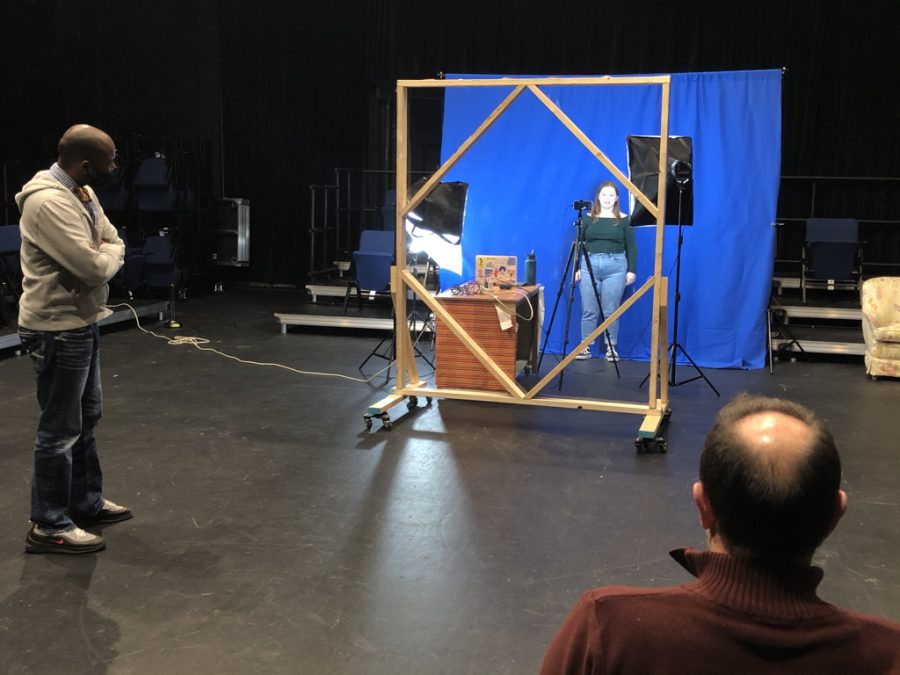The performance world post-COVID-19 is certain to look different than the world before. When it comes to booking shows, it will be quite some time before actors will be present at live “cattle call” auditions, like they have been trained to do. Therefore, the Viterbo theatre and music theatre department offered students the chance to work on their self-taping skills.
These workshops were conducted during the month of February by Rick Walters, professor of acting, and Arbender Robinson, visiting instructor. Students were able to sign up to perform either a song or monologue before the camera and receive live coaching. COVID-19 guidelines were strictly enforced.
Ruby Brisco, first–year music theatre, was one student ready to expand her horizons. “I decided to sing today,” said Brisco, “I feel my acting and my singing never connect, I can only do one at a time, so I came for the extra practice.”
And practice she did. She was invited behind a plastic screen, distanced 10f feet from the instructors, before removing her mask to sing. Brisco was then given 20 minutes to perform before the camera, all while applying criticisms and pointers from Robinson and Walters.
“It was really cool to break down the parts of my song,” Brisco reflected, “The fact that I got to work on it with Arbender, who has Broadway credits, and Rick, a very talented acting teacher, was something I have never done before and was so cool.”
Kiley Silva, second–year music theatre, was at first hesitant to step outside her comfort zone. In fact, she credits her roommate for taking the leap first; however, Silva said her roommate “did it by accident. She was helping Arbender and Rick as an assistant when they invited her to get behind the camera. She really enjoyed it.”
The reason for this reluctance, Silva explained, was that she is “not a fan of self–taping.” “I think I sound better, feel better and my personality comes across better in-person,” Said Silva, “I still feel this way, but I think today helped a lot.”
After her experience, Silva said now has a greater understanding of all the small details the camera captures as well as new approaches to this process in her home studio.
Both participants agreed they would happily sign up again and to have the opportunity to perform more material before the instructors. But why only after a pandemic are we seeing this opportunity offered?
“This was something we had been planning on doing for quite a while,” explained Walters, “We found ourselves with some dollars that were not being spent on a production. Erin Jerozal [department chair] then had the idea to invest that money in purchasing equipment and setting up a masterclass-like setting.”
Walters also noted that, since before the start of the pandemic, self-taping has been steadily becoming the way theatre companies are casting talent. He stated that students can look forward to self-taping be more integrated within the curriculum as well as a permanent self-tape station set up on campus.
Robinson reiterated the importance of this integration and resource for students when he stated, “this audition form has been a reality to us every day, for years… it is nothing new. Because I do it every day, I want to have students feel a sense of normalcy to it.”
He assured those who entered the workspace that they were welcome, no matter the place they were in their process, to grow and learn. “You get better at it the more you do it,” continued Robinson, “for some people, they only do it when they have to. Everyone has the resources, most people have phones, they just need to be reminded.”
What was once an intimidating circumstance for students, partakers in the lab felt the stigma had somewhat been lifted. It is clear that self-taped auditions are the new norm for performers; thankfully, the Viterbo theatre and music theatre department will continue to do their part in preparing students for this new reality.

